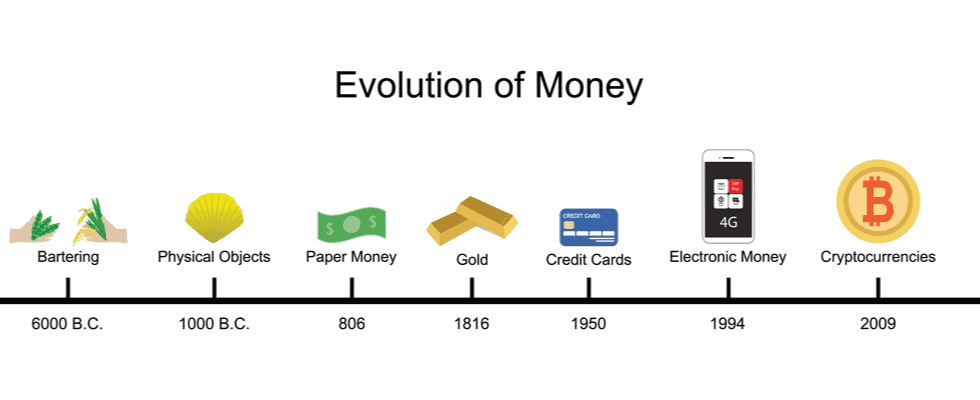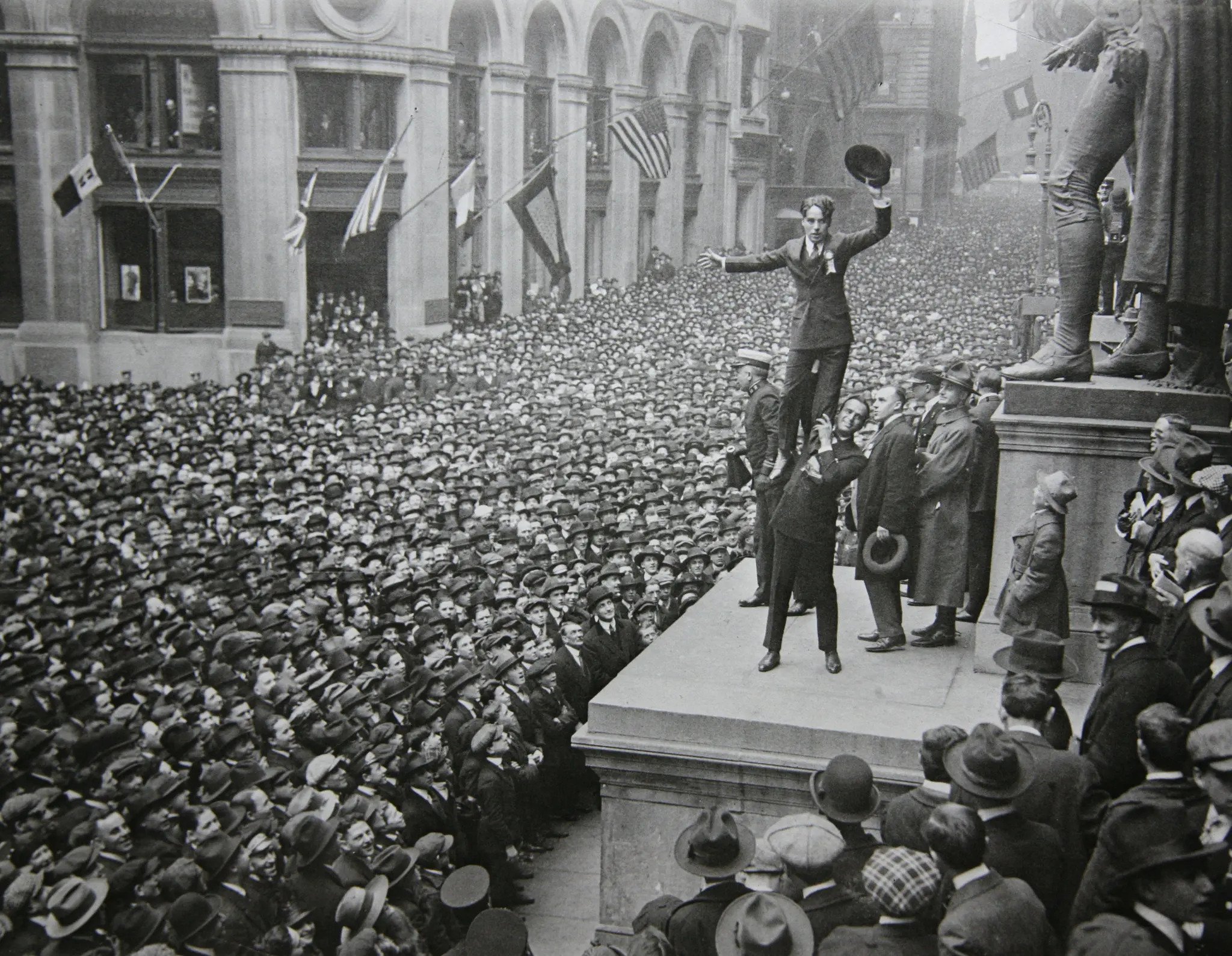Economics: Now, Future and Crypto
Part 1: Today's economy
Part 2: The economy of the future
Part 3: Crypto, the money of the future
ECONOMICS: NOW
![]() Marius Amundsen. May 25th, 2022.
Marius Amundsen. May 25th, 2022.
Is there anything more difficult than economics, finance and money? Human behavior is one of the most complex structures out there. Absence of balance between logic and emotion, peace and war, harmony and chaos. Makes man extremely unpredictable. Man is purposeful and strongly capable, we are capable of the most incredible things. That we seek power makes us explosive. Something that is unpredictable, capable and explosive, living together, is nothing short of a miracle. What holds us together? Rules and a judiciary system are important, but man loves breaking rules. Man has realized something incredibly useful, his own interest in others. We manage to understand the positions of others. This enables us to trust each other. This facilitates collaboration. Trade in goods and services are cooperation. Trade creates economy and finance. Money is the means used for trade. In the old days, two things had to be exchanged in a trade, 2 liters of milk for a loaf of bread. To use barter with two different objects are demanding. This led to the creation of barter with one thing, a buyer and a seller. The object on the other side of the barter is and became money. This needed to be an object that held value in the eyes of men. Many objects have been tried, and many have failed. Gold has maintain its value the longest, and been used as money.

Money transfer
Today, fiat currency is used as money. This is money that is 100% created by humans. Which is flexible in nature, and controlled by humans. These people sits largely at the central banks, and is subject to a mandate. This mandate is broadly aimed at promoting the community interests, often in policies aimed at stable purchasing power and low unemployment. Fiat currency is flexible due to the aspects that are helping to create value. When gold acted as money, scarcity provided value. Money today uses scarcity, debt, tax and the judiciary as some of the value-adding factors. These factors can be adjusted, and some are controlled by the central bank and are called theirs tools. Scarcity is controlled by the money supply and debt by interest rates, these are central bank tools. The power of the central banks are strong precisely because of the tools. The fact that central banks have the strongest power over money means that the responsibility lies with them. Central banks are not historically that old, but have never had more responsibility than now. Shared responsibility is beneficial when mistakes occur and guilt should be distributed. The enormous responsibility that now rests with the central banks may turn out to be of the critical kind.
"The first thing (in credit) is character… before money or anything else. Money cannot buy it." —
JP. Morgan.

Too much debt is not healthy. Everything has its limit, and even water can be fatal in too large a dose. Debt is now at a level that is historically high. Businesses, individuals or governments have all increased the amount of debt they hold. This is strongly related to the falling interest rates the last decades and incentives from the authorities. Which has increased the lending ability of everyone. This has led to more capital available, which in turn has contributed to price growth in equities, real estate and commodities to name a few markets. Investment and speculation with borrowed money have during this time given good returns. Which has increased the willingness to take risks, and the desire for debt. Nothing lasts forever and a major restructuring tends to enclose the last phase of a debt cycle. Where finally debt loses value, in the worst case the loss of value is transferred to the money the debt is issued in. The rush and price growth from debt, followed by side effects have similarities with sugar. We are dependent on debt and sugar, but the right dose is important.

1918: Douglas Fairbanks and Charlie Chaplin promote the Liberty Loan
The central bank's independence is important. This prevents anyone from being able to misuse the tools that the central bank possesses. Even for trained central bank people
it is a danger, where subjects such as ethics and economics have had time to grow. The risk is significantly higher if individuals, companies or public authorities were to
gain access to such power without training. With the large increase in debt it has brought many parties closer together, and unfortunately not always in a desired way. The
ties between the state and the central bank have become closer. This is because central banks own a lot of government debt. Which puts their independence to the test.
This government debt has ended up at the central banks as a solution in crisis. The states sell bonds to the market. In times of large stock market decline and pressure
on the economy, the central bank has felt compelled to stimulate, or more precisely, increase the money supply. This has happened by printing up more money and buying
government debt of the market. That the market knows that there is such a large buyer of government debt ready to buy during difficult times, has made the price of government bonds
high. Which has helped to put downward pressure on interest rates. With a buyer who uses government debt as a tool to increase the money supply, it has led
to several imbalances in the market. First, interest rates are made artificially low. Second, the price of government bonds are artificially high. Third, it is
easy to exploit such a mechanism, something large buyers of government debt have done. These buyers need a lot of capital, and are often banks or large institutions.
The rich have benefited greatly from this along with the cantillon effect. Which is that new printed money has more value in the beginning. When the money supply increases, it takes time
before the market adjusts prices, and therefore it benefits new money. Inflation comes with a delay.
With a world in constant motion, there will always be challenges, conflicts and opportunities. Despite new technology and better productivity, there are many who struggle with high food prices, electricity prices and housing costs. The fact that many are left out of the job market is a challenge. Which helps to create bigger class division in society. Covid has not helped, and the aging wave will be demanding in Norway. With major conflicts between East and West potentially military. Climate change and natural disasters. There is a lot that can and will go bad, but those before us have gone through world wars and things thats worse. There is always hope, and with new technology there will be new opportunities. I think man's greatest discovery was when two people took each other's hands for the first time. When they knowingly put their trust in another human being, trusting that they themselves and the other party could help each other. In my opinion, crypto has the opportunity to be a digital handshake, which may be as valuable to humanity as the handshake.
Marius Amundsen
Want more information about crypto?
Sign up for a practical course here.